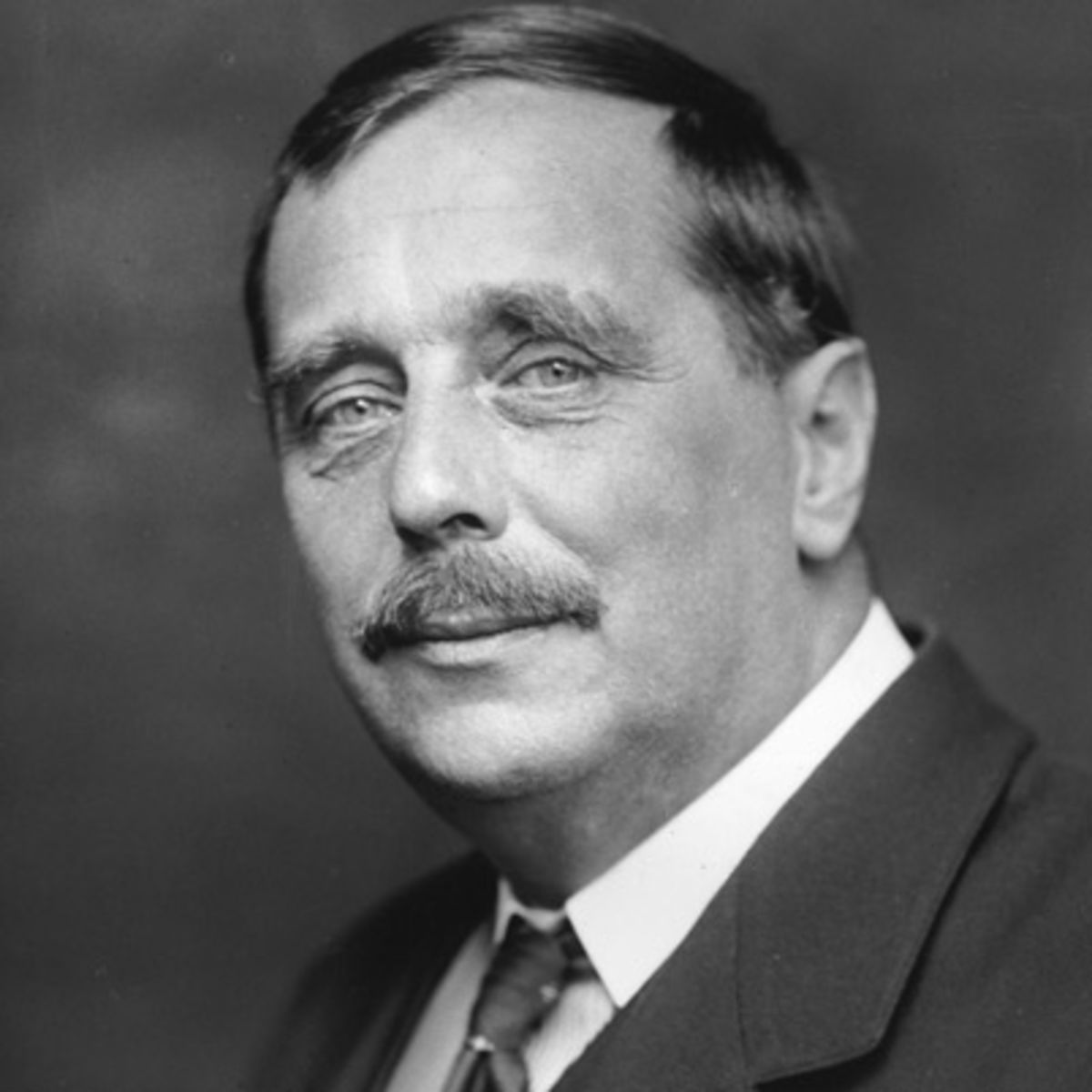From The World Set Free by H. G. Wells
“Given that knowledge,” he said, “mark what we should be able to do! We should not only be able to use this uranium and thorium; not only should we have a source of power so potent that a man might carry in his hand the energy to light a city for a year, fight a fleet of battleships, or drive one of our giant liners across the Atlantic; but we should also have a clue that would enable us at last to quicken the process of disintegration in all the other elements, where decay is still so slow as to escape our finest measurements. Every scrap of solid matter in the world would become an available reservoir of concentrated force. Do you realize, ladies and gentlemen, what these things would mean for us?”
The scrub head nodded. “Oh! Go on. Go on.”
“It would mean a change in human conditions that I can only compare to the discovery of fire, that first discovery that lifted man above the brute.”
***
The gaunt face hardened to grimness, and with both hands the bomb-thrower lifted the big atomic bomb from the box and steadied it against the side. It was a black sphere two feet in diameter. Between its handles was a little celluloid stud, and to this he bent his head until his lips touched it. Then he had to bite in order to let the air in upon the inductive. Sure of its accessibility, he craned his neck over the side of the aeroplane and judged his pace and distance. Then very quickly he bent forward, bit the stud, and hoisted the bomb over the side.
“Round,” he whispered inaudibly.
The bomb flashed blinding scarlet in mid-air, and fell, a descending column of blaze eddying spirally in the midst of a whirlwind. Both the aeroplanes were tossed like shuttlecocks, hurled high and sideways and the steersman, with gleaming eyes and set teeth, fought in great banking curves for a balance. The gaunt man clung tight with hand and knees; his nostrils dilated, his teeth biting his lips. He was firmly strapped. . . .
When he could look down again it was like looking down upon the crater of a small volcano. In the open garden before the Imperial castle a shuddering star of evil splendor spurted and poured up smoke and flame towards them like an accusation. They were too high to distinguish people clearly, or mark the bomb’s effect upon the building until suddenly the facade tottered and crumbled before the flare as sugar dissolves in water. The man stared for a moment, showed all his long teeth, and then staggered into the cramped standing position his straps permitted, hoisted out and bit another bomb, and sent it down after its fellow.
The explosion came this time more directly underneath the aeroplane and shot it upward edgeways. The bomb box tipped to the point of disgorgement, and the bomb-thrower was pitched forward upon the third bomb with his face close to its celluloid stud. He clutched its handles, and with a sudden gust of determination that the thing should not escape him, bit its stud. Before he could hurl it over, the monoplane was slipping sideways. Everything was falling sideways. Instinctively he gave himself up to gripping, his body holding the bomb in its place.
Then that bomb had exploded also, and steersman, thrower, and aeroplane were just flying rags and splinters of metal and drops of moisture in the air, and a third column of fire rushed eddying down upon the doomed buildings below. . . .
***
Such was the crowning triumph of military science, the ultimate explosive that was to give the “decisive touch” to war. . . .
A recent historical writer has described the world of that time as one that “believed in established words and was invincibly blind to the obvious in things.” Certainly it seems now that nothing could have been more obvious to the people of the early twentieth century than the rapidity with which war was becoming impossible. And as certainly they did not see it. They did not see it until the atomic bombs burst in their fumbling hands.





